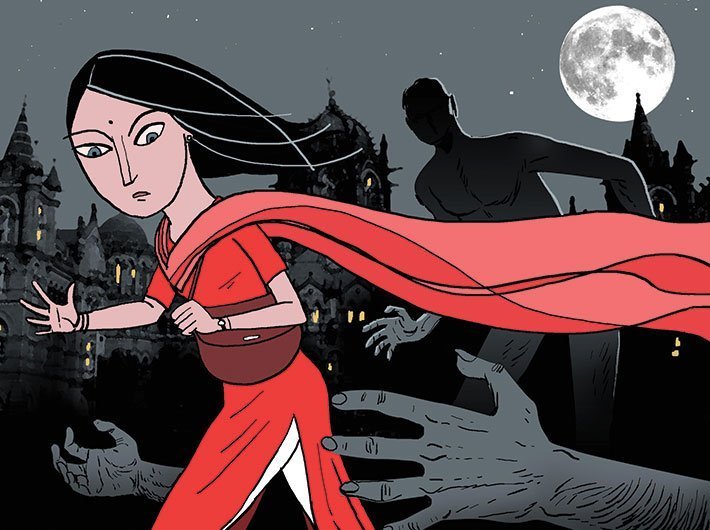Kathua and the Unnao cases show we have not learnt a lesson from the 'Nirbhaya' case
An eight-year-old infant in Kathua of Jammu and Kashmir was kidnapped, drugged and gang-raped for eight days and then murdered. After a young woman accused the local MLA of rape, her father is thrashed and dies in judicial custody. The Yogi Adityanath government orders withdrawal of a rape and abduction case lodged against former junior home minister Swami Chinamayanand – more than seven years after he was booked by the Shahjahanpur police. In Assam, six girls were raped and killed last month. A professor of the prestigious Jawaharlal Nehru University was released within hours of arrest though several students had accused him of sexual harassment, and then the professor’s lawyer named one of the complainants on a news channel in utter violation of law. Another echo of sexual harassment was heard from the department of chemistry at University of Delhi.
It is time for collective solidarity with trade-offs between procedural and substantive justice, as silence will only defeat the ethos of struggle of women worldwide.
A perplexing question emerges before We, The People of India: where are we headed? Of course, one should not jump the gun, never reach conclusion in haste, and should pronounce the guilty only after due investigation. At the same time, we have to carefully chalk out lines of our arguments – that in these matters of violence and crime against women, one need not look for secular or communal credentials, or paint them as ‘us versus them’ or ‘Hindu versus Muslim’, as it goes without saying that a crime is a crime and wrongdoing or evil has no justification in any civilised society. Further, let’s recall that no faith preaches hate.
No doubt, we are all sensitised to what is happening but at the same time, it brings certain painful questions to the fore: do we now always check the religion of the victim and the accused? That instead of working on hurdles in way of justice, will our citizenry chart out an absolutist way of majoritarian versus minority divide? And the most nauseating aspect, can we allow politics to rule over humanity in instances of sexual violence on the basis of religious prejudice?
Police and law and order are primarily state subjects, but the federal deficit is visible in terms of silence on part of the central government to work out cohesive laws for women.
Let’s recall Winnie Mandela’s concern, that patriarchy, ‘rape culture’ and femicide of the post-apartheid South Africa would derail the hard-won freedom as there can be no liberation without women. Despite public outrage that we saw in India after the ‘Nirbhaya’ case, sexual violence and crime against women remain as epidemic as ever. This is why feminism as an epistemology in global and national politics cuts across borders. The context may change but the text remains the same, that ‘gender’ is used as a social construct in order to use biological differences for exploitation of women. Rape, harassment and sexual assault also are an expression of power and control.
Women’s movements also have come a long way from the first generation battling for political rights, to the second phase arguing for social and economic stakes. The reasons for crime against women not only stem from patriarchy, but also from inadequacy or at times failure of law and order. The tragic truth in India and elsewhere is that first information report (FIR) may be the beginning of a process which ends with appallingly low conviction rates.
Also let’s get our theorising clear that not all women are feminists, and, at the same time, not all men are misogynists. However, the haunting indoctrination of patriarchy reinforces a system where girls are raised with the fear of rape and the responsibility of controlling themselves in order to not get raped. Here we are to blame so far as we are passively complicit in upholding a system which rewards male entitlement and female dehumanisation.
If we bring in a comparative perspective, countries like Iceland or cities like New York have reformed their legislations to make progressive laws more effective. In India, however, reforms have surely lagged behind. There should be zero tolerance towards such crimes. At the same time, death penalty as punishment for rape may not be the right deterrent.
What the Kathua and the Unnao cases have unveiled is the fact that we have not learnt a lesson from the 'Nirbhaya' case. Bringing nationalism and religion into the debate over the ghastly crime only shows that the bias against women is deep-rooted. It is as if the polity fears ceding space to women. Merely having more female legislators will do no good to the larger issue of women empowerment. Today as the world is shocked at the rise in violence against women in our country, we have done a huge disservice to ethos of the constitution as well as to the foundations of faith.
Swami Vivekananda, who worked tirelessly to fight the plight of women, had cautioned us: “There is no hope for that family or country where there is no estimation of women, where they live in sadness.” These defining moments hold this same mirror for us today as to how the powerful have shielded the corrupt, that the idea of change in the nation was only superficial and that we have allowed politicisation of tragedy along divisive lines.
Dr Mirza is assistant professor, Political Science, University of Delhi.
